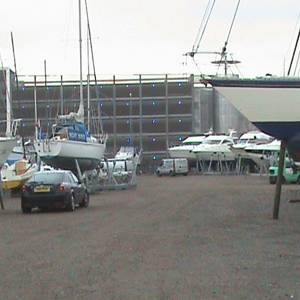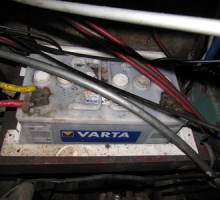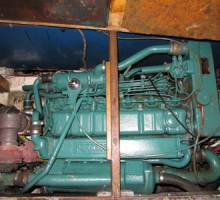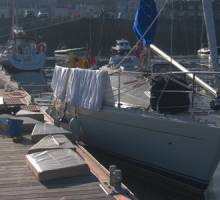
Advice on Winterising your boat
When I am not working or boating my other interest lies on the ski slopes. My family have always enjoyed a winter holiday in the alps. I would ponder on the probability that mountain people are very similar to those that live along the coast or venture over the horizon in boats. I think it must be something about a pastime in the open where you can challenge yourselves against the environment. Many a good ‘yarn’ can be spun of an evening in a mountain chalet as well as a yacht club or saloon and I would speculate that they are probably very similar stories based upon being caught out when the weather changed or hitting something or somebody when you (or they) were out of control.
Well all that aside, in the weeks upto Christmas I have to wonder whether the Alps had arrived in kent. Over the weekend of December 19th , we had a real dose of snow. Not just the wet slushy kind that is half rain/half ice but very alpine ‘dry snow’. As you may have seen, it caused a lot of traffic problems but I have to say that I did venture out to do a viewing and list a boat. Now, the listing was not completed, as you may imagine, because the decks were covered in snow and to be honest it was too dangerous. But I did photograph the interior and collect all the details for the boat. I shall finish the job when it melts !
All this talk about weather and snow brings me on to some helpful advice given by a local YBDSA Surveyor (Robert Bingham) concerning ‘winterising boats’. Recently on my travels around the Boatshed Medway and Kent areas to clubs such as Medway Yacht Club, Chatham Maritime (MDL), Strood Yacht Club and Rochester Cruising club, and also in the Marinas and Yards around Dover, Ramsgate Faversham and Ore I have noticed that boats are being lifted out for the winter.'
'I know what its like, just when it starts to get cold, the last thing you really want to do is some work or jobs. ‘Put it off’ until March/April I always hear! However, these are important issues and I think a bit of time and effort now can get you afloat quicker at the beginning of the season. Here are a list of issues and reminders that you might like to check if your boat is out of the water this year:
1. Ensure the raw water cooling system is drained down and the impellor is removed. This will reduce the risk of the cooling hoses splitting and will prolong the life of the impellor.
2. Try to ensure that the fuel tanks are filled especially diesels as this will reduce the risk of water contamination andf uelbugs.
3. Fresh water systems and tanks should be drained down to reduce the risk of freezing waters splitting the tanks and pipework.
4. If the batteries are being left on the boat and being trickle charged make sure the levels are topped up so that the batteries don’t dry out and buckle the plates. If possible take the batteries off the boat and keep them in the garage this Winter where they can be checked more easily.
5. If possible fit an inexpensive tube heater in the engine bay and in the accommodation space which will help prevent freezing. If eletricity is not available an old blanket can be used to wrap around the engine to keep the temperature up.
6. If possible change the oil before the vessel is laid up. This will prevent contaminates in the oil such as moisture being left on the internal engine parts thus reducing the risk of corrosion and wear.
7. Cushions should ideally be taken home but if this is not possible lift them enough to ensure that condensation cannot gather underneath and air can circulate more freely.
8. If using condensation traps place them in areas where, if they overfill, they will not damage upholstery or internal linings.
9. Try to ensure that the canopy is well supported so water cannot gather and stretch or rip the materal. You can use Vaseline on canopy clips and lip balm on zips which will prevent the clips from corroding and reduce the risk of zips seizing.
10. Try to ensure that bilges are left dry. This will reduce the risk of freezing water damaging your boat.
11. Remove sails. Over the Winter months they never get time to dry and algae will start to build up attacking the stitching and causing corrosion in the eyes.
12. Secure the rigging with shock cord or bungee reducing the movement from the wind and thus reducing wear in the rigging.




